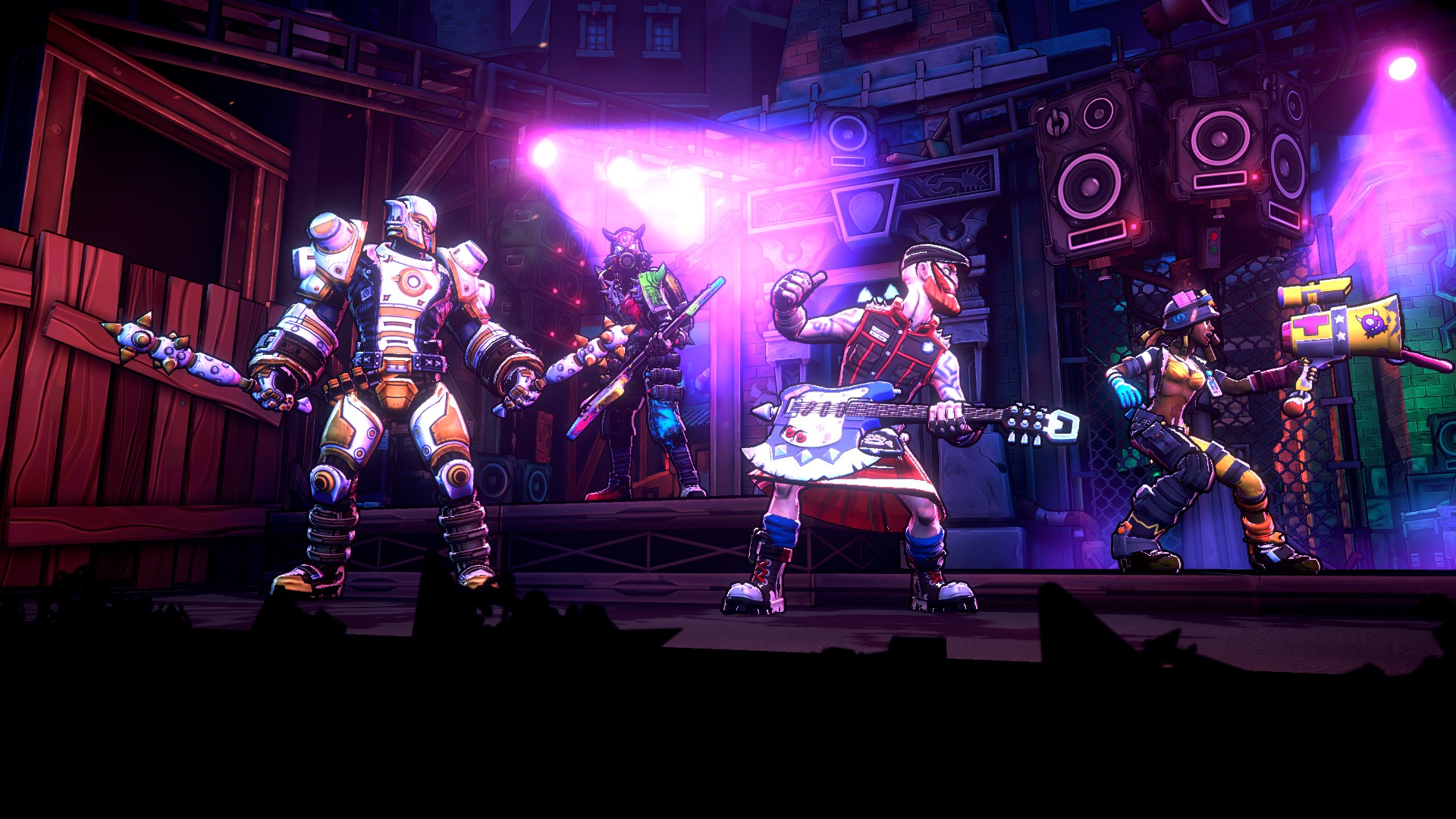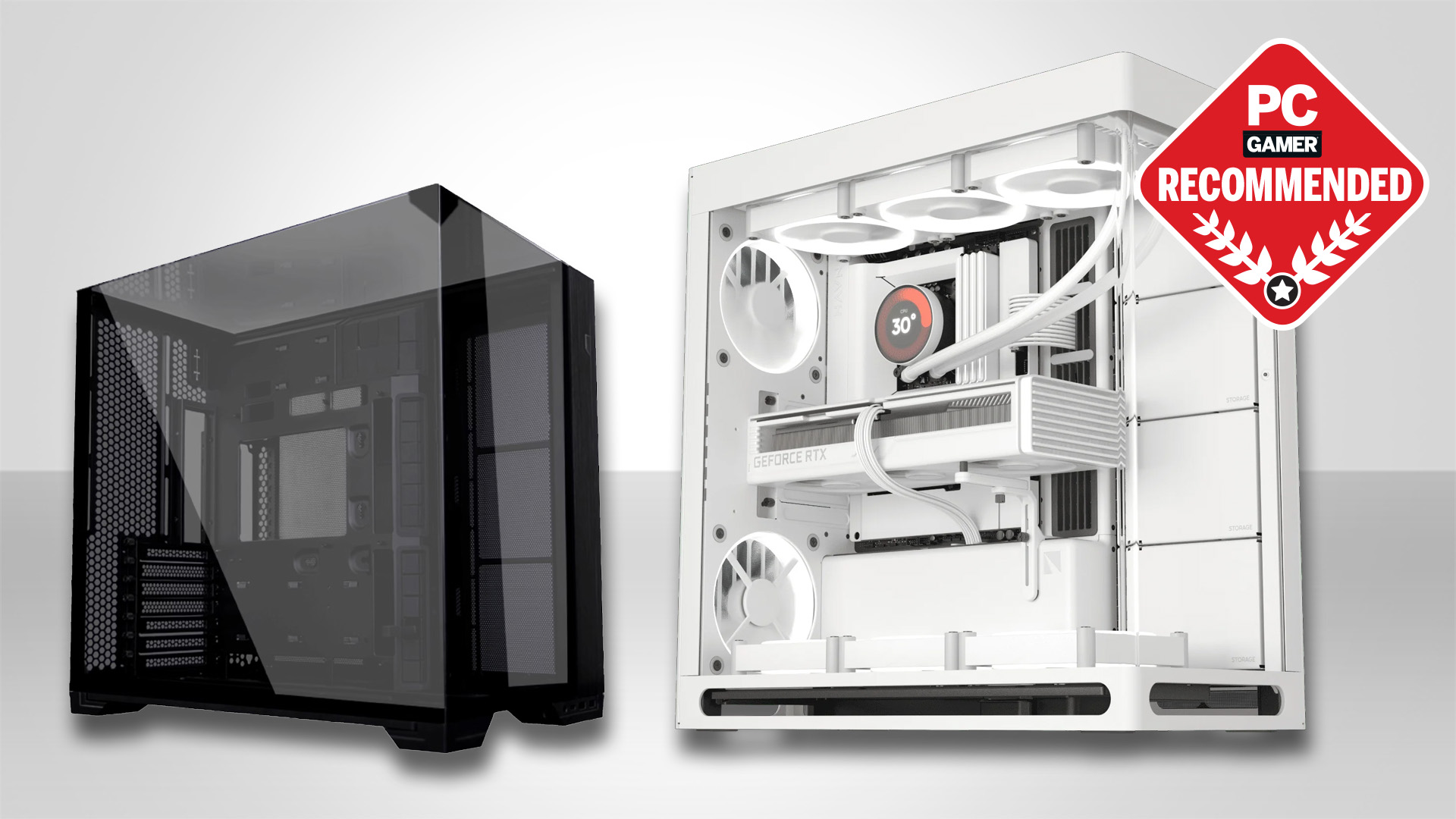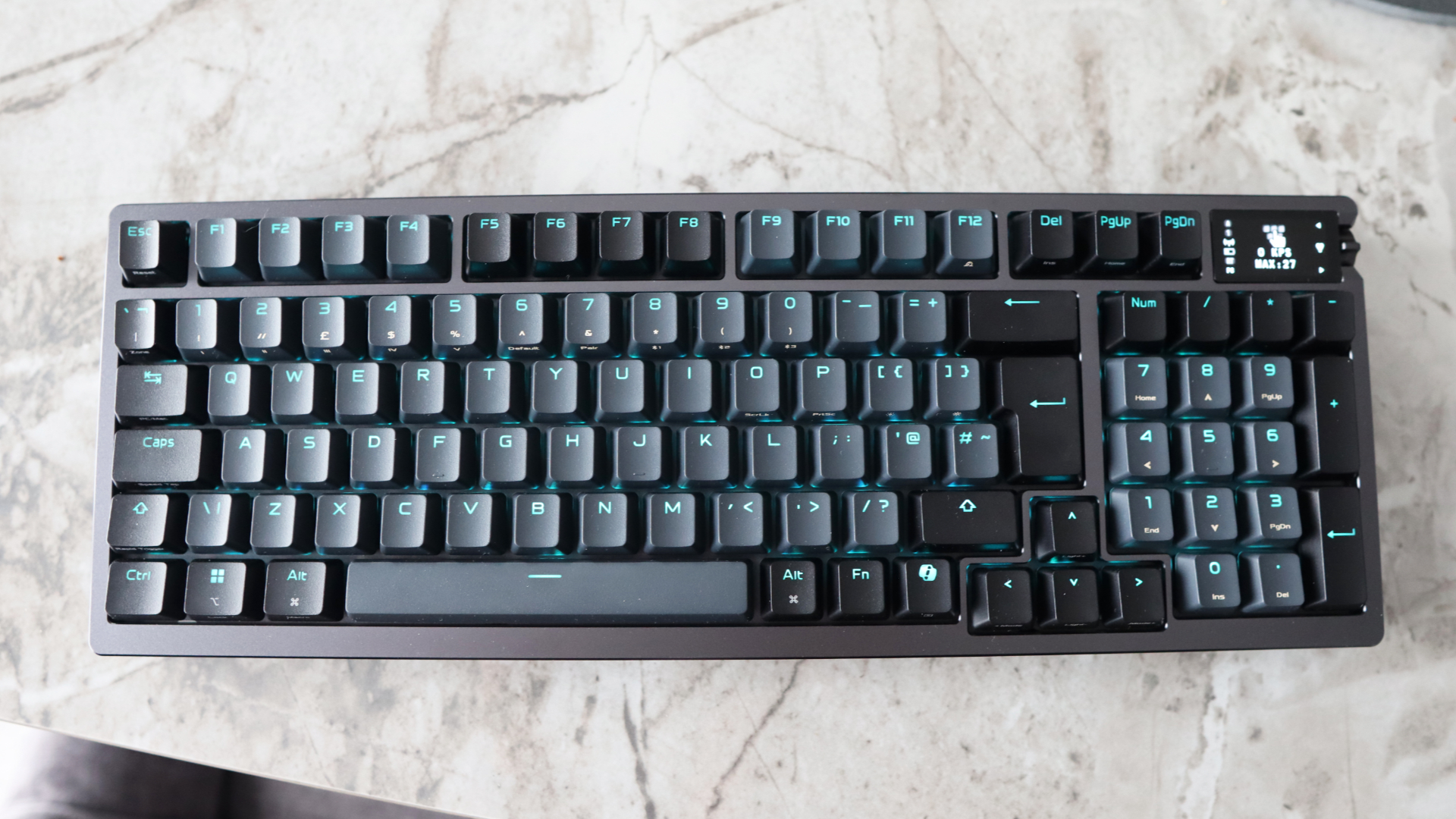Our Verdict
Power Chord’s slick card-slinging combat is weighed down by a gaudy aesthetic and lack of variety.
PC Gamer's got your back
Mid-pandemic, I was subleasing the corner of a musty, beer can-infested jam space to practice drums. The unit behind mine was the frequent domain of an aging speed metal band, who never played in-time for more than half an hour and were routinely too drunk to finish a single practice. When the lead guitarist would take a break from arguing with his girlfriend on the balcony, he would pass me in the halls, begging for cocaine while playing Motörhead on his phone speakers. Power Chord is a lot like that band.
What is it? Rogue-lite Heavy Metal Deck-Builder
Expect to pay: $20 / £16.75
Release date: January 26, 2023
Developer: Big Blue Bubble
Publisher: Big Blue Bubble
Reviewed on: Windows 10, Ryzen R7 5700g, 16gb DDR4 RAM, Radeon RX 5700
Multiplayer? No
Link: Steam page
Power Chord’s deck-based combat centers on its lineup, each member of your band offering a distinct way of dealing or negating double-digit damage numbers. In spite of his eye-rolling name, I really latched onto Grimnir Brawlfist, a lead guitarist who throws out deadly riffs based on how much rage he accumulates from taking damage himself, which can be helpfully negated by the drummer’s slew of barrier and armor abilities. The vocalist and bassist positions fill support and healer niches, respectively, giving the band (and each hand of cards) a healthy variety.
Each fight typically doles out either a random card or cash used to buy (or burn) cards. The interplay between cards in a deck is where Power Chord really gets interesting, with the best ones all having some kind of built-in challenge or secondary ability. “Sunder” deals a quick and dirty seven damage, a foe-finishing number that'd typically require building towards over a few early game turns, but hands out free barriers to allies when it’s used to break through an enemy shield.
Most critical to my success were Grimnir’s cards, where rage stacks can be augmented further by playing a stance card that generates more rage at the cost of taking on greater damage. Power Chord limits you to playing a couple cards each turn, a constraint that shines when it feels like you and your foes are playing two turns ahead of each other. I just wish it was clearer what was happening on the turn I’m already playing.
Power Chords’s underlying mechanisms may seem familiar if you've poured weeks into the likes of Slay the Spire or Monster Train, but without a Master's degree in deckbuilders I was often overwhelmed by poorly communicated stacks and debuffs. It’s difficult to discern where damage is coming from, or why some attacks are near-one hit knockouts and others aren't.
A lot of this comes down to the enemy variety (or lack thereof). The demonic band posting up on the other side of the stage is commonly composed of a dizzying spread of subtypes, each with specific abilities and bonuses that can drastically affect the course of combat. With only four distinct silhouettes between them (and some confusing instrumental overlap), I found myself barely able to parse the enemy roster, and I was often left scratching my head wondering how and why I was taking such massive bursts of damage. Still, it is satisfying to identify the band’s weakest links and pull off a decapitation attack that neuters their damage output.
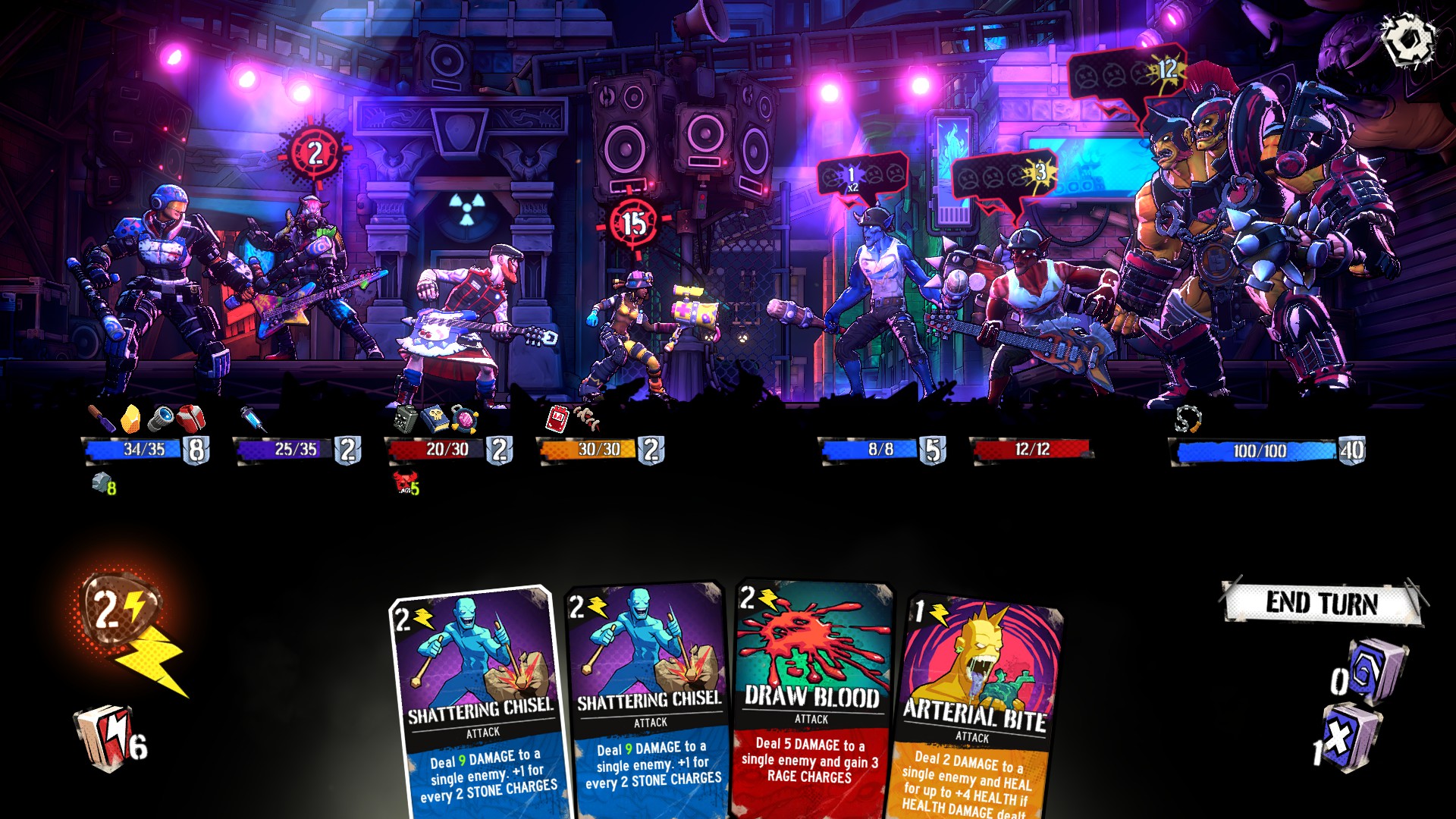
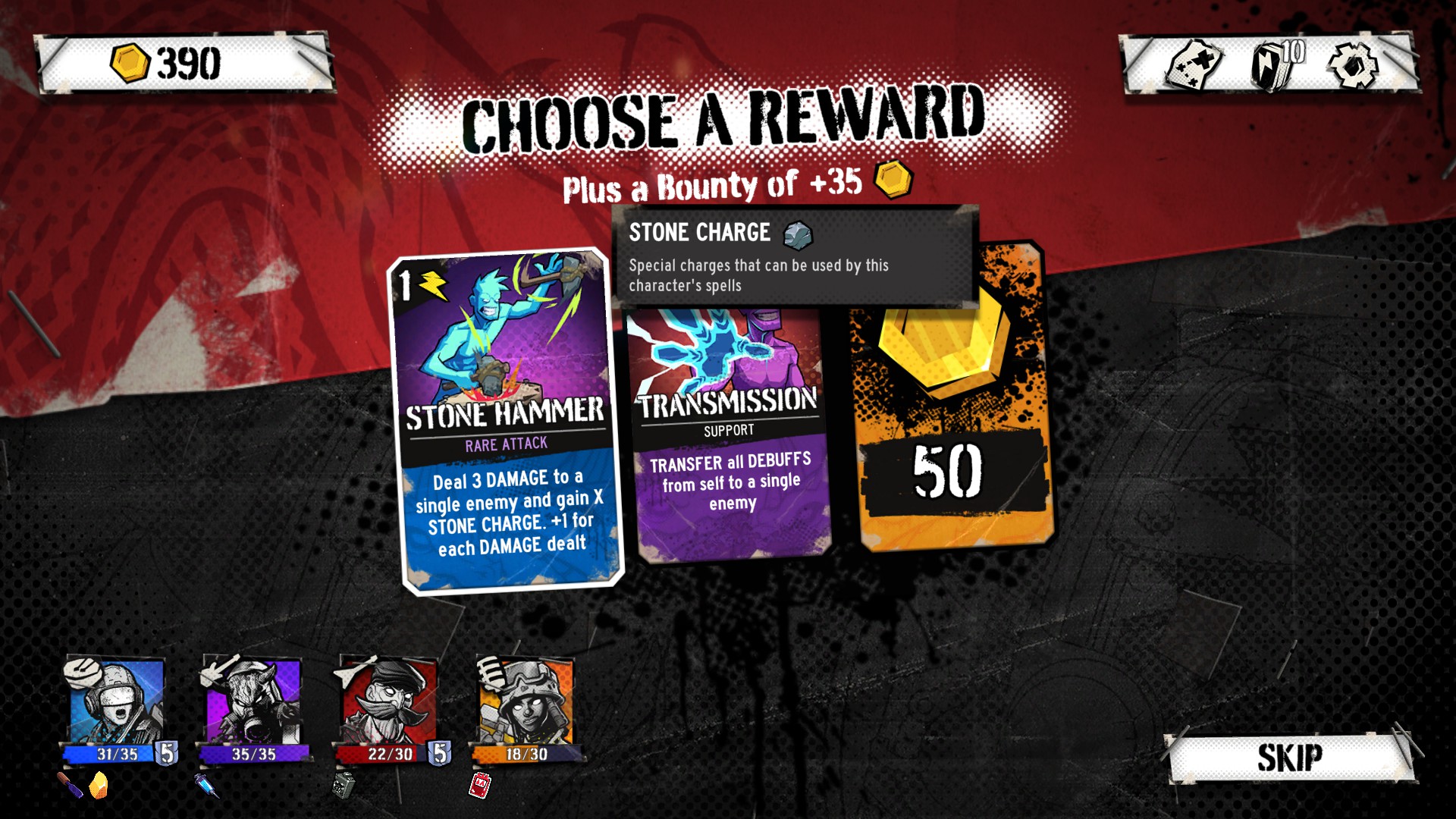
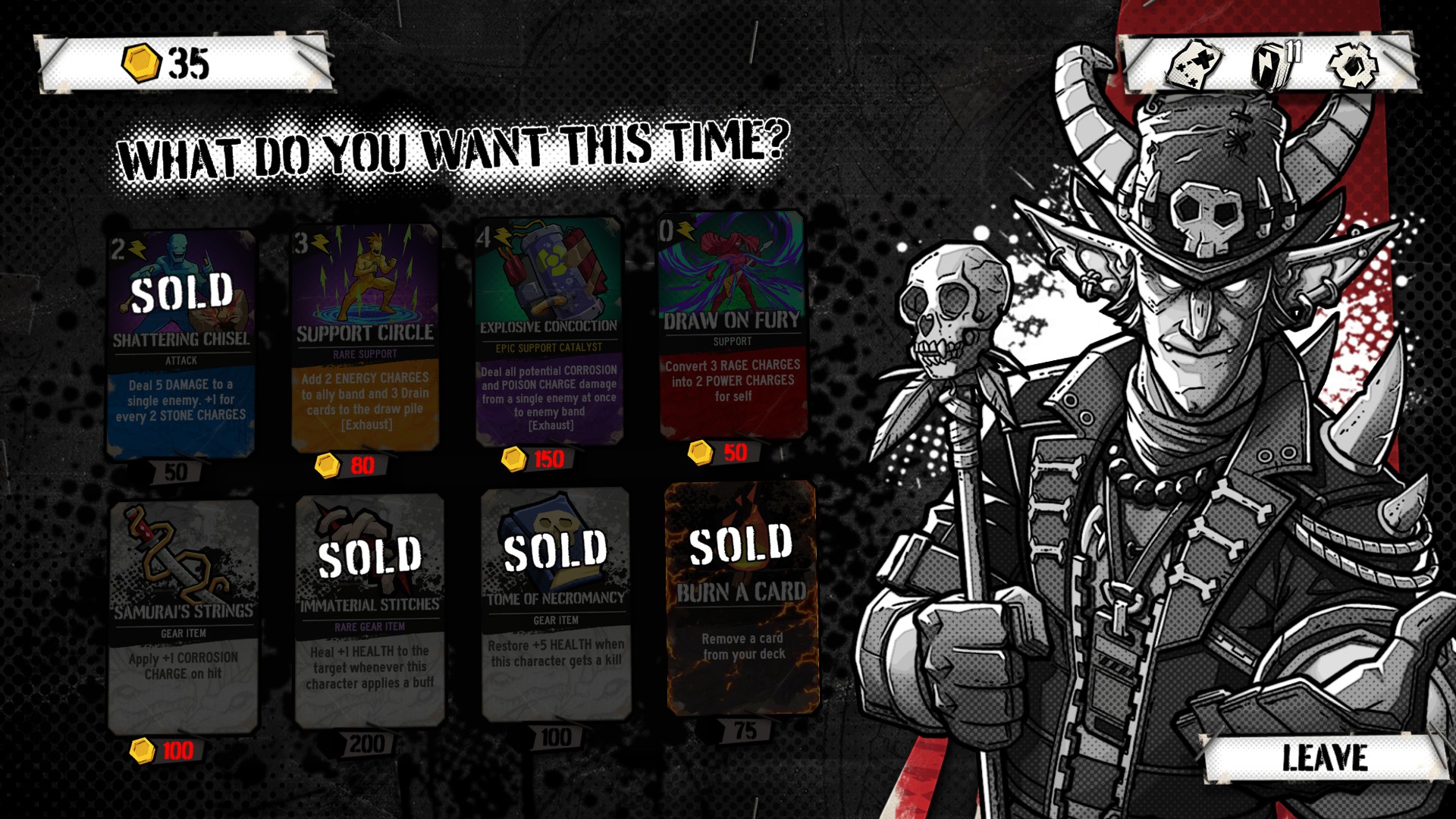
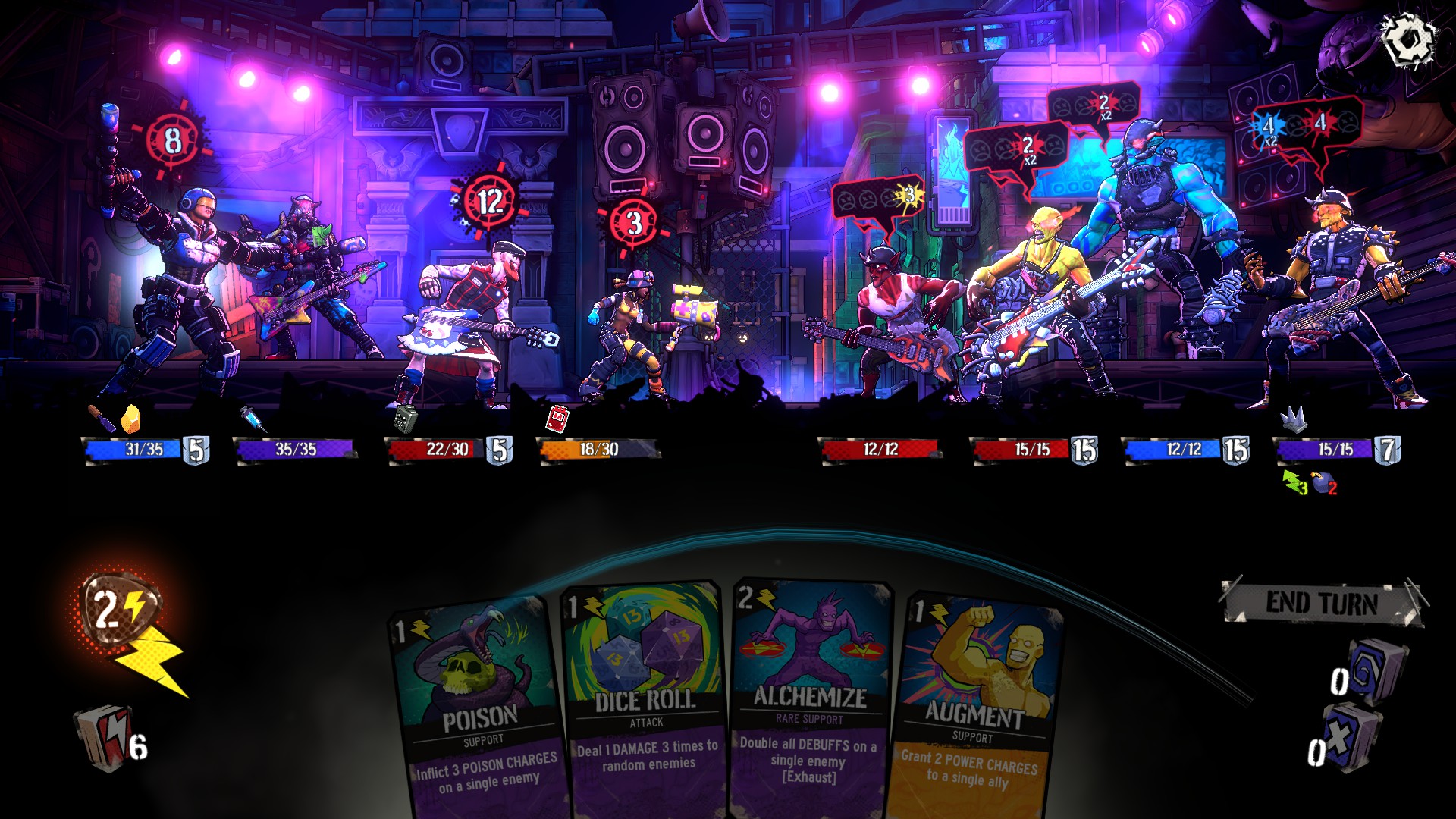
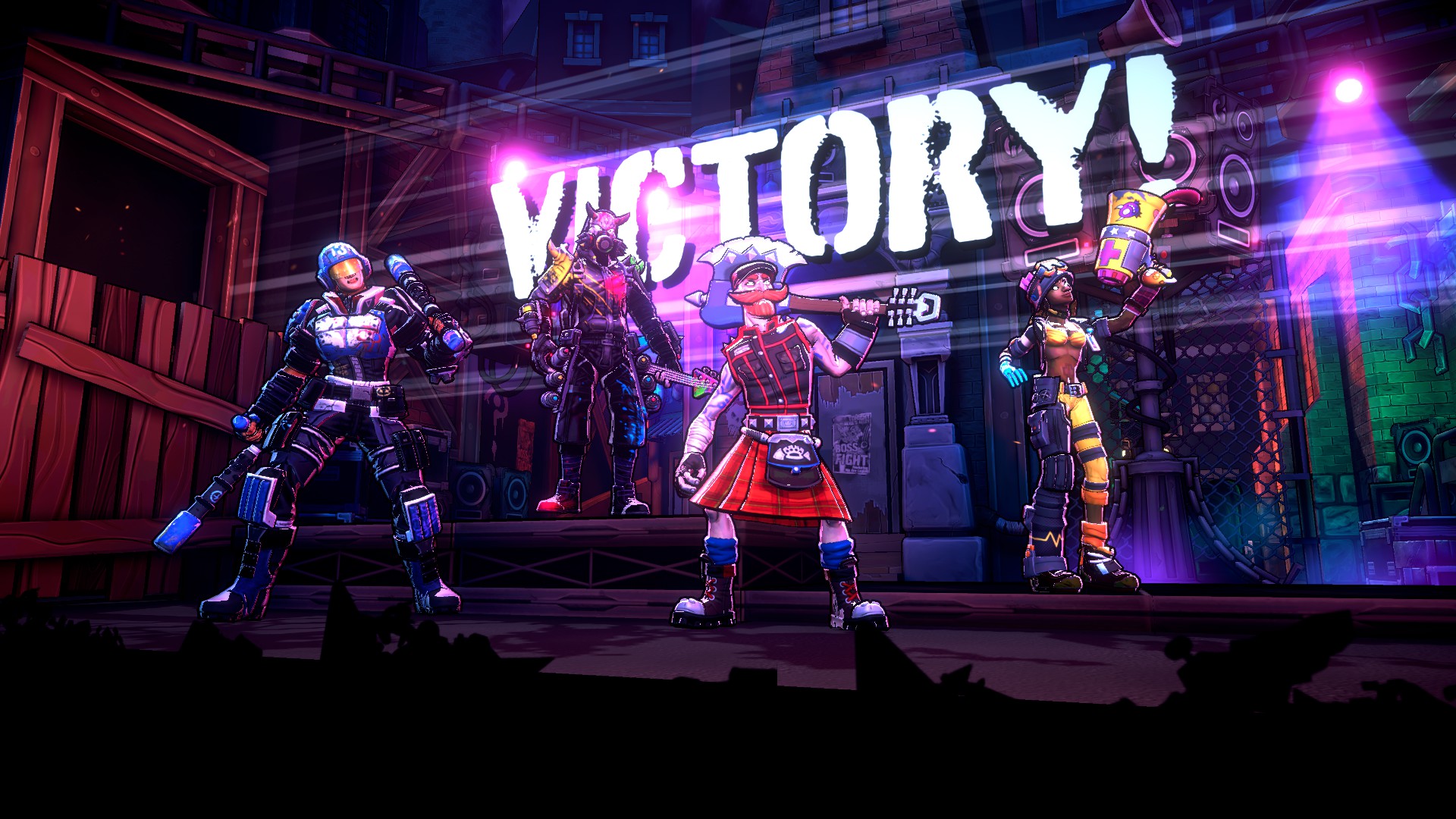
One of Power Chord’s missed notes is in its theme, with musical stylings that are frustratingly skin deep, arrhythmic “I go you go” turn based card-slinging over top of some bargain bin punk/metal/sludge instrumentals. It’s all appropriate enough for the subject matter, but with runs often lasting over 45 minutes, I quickly found myself wanting to listen to something, anything else. It’s a barebones visual affair that I doubt is going to win over anybody that’s sincerely into metal music, with battles only ever occurring on a single, unchanging concert stage – even the most washed up touring band knows to mix up the lights here and there.
Keep up to date with the most important stories and the best deals, as picked by the PC Gamer team.
Despite digging their cards, I wasn't totally sold on any of the bandmates I was saddled with, either. Too many are derivative amalgamations of album art tropes that spend a lot more time attacking with their weapons than playing music. The drummer, for example, the sole “Knight of the Thunderfirst” (ugh) looks like a 40K Space Marine with two giant clubs. None of his attack animations ever line up with what’s on the cards—he swings both sticks once when playing the “One, Two” card.
I’ll cop to not being a metal guy, but it’s a deeply rich genre, and hard as hell to play, let alone play well. To see none of that reflected earnestly in-game is just one way Power Chord is permeated with a pervasive sense of “missed opportunity”—it just feels cheap to fall back on the type of aesthetic that Metalocalypse was mocking in 2006.
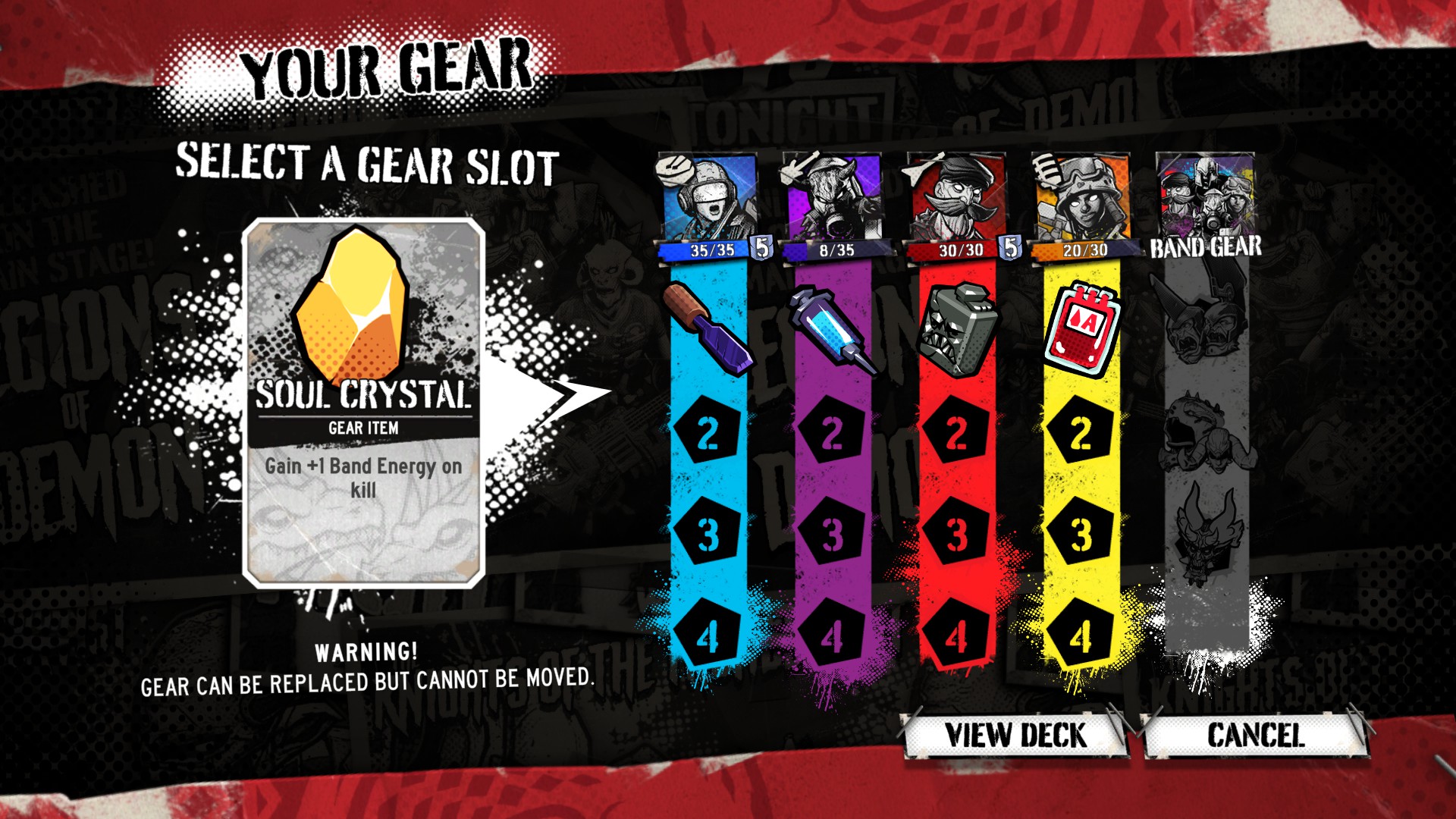
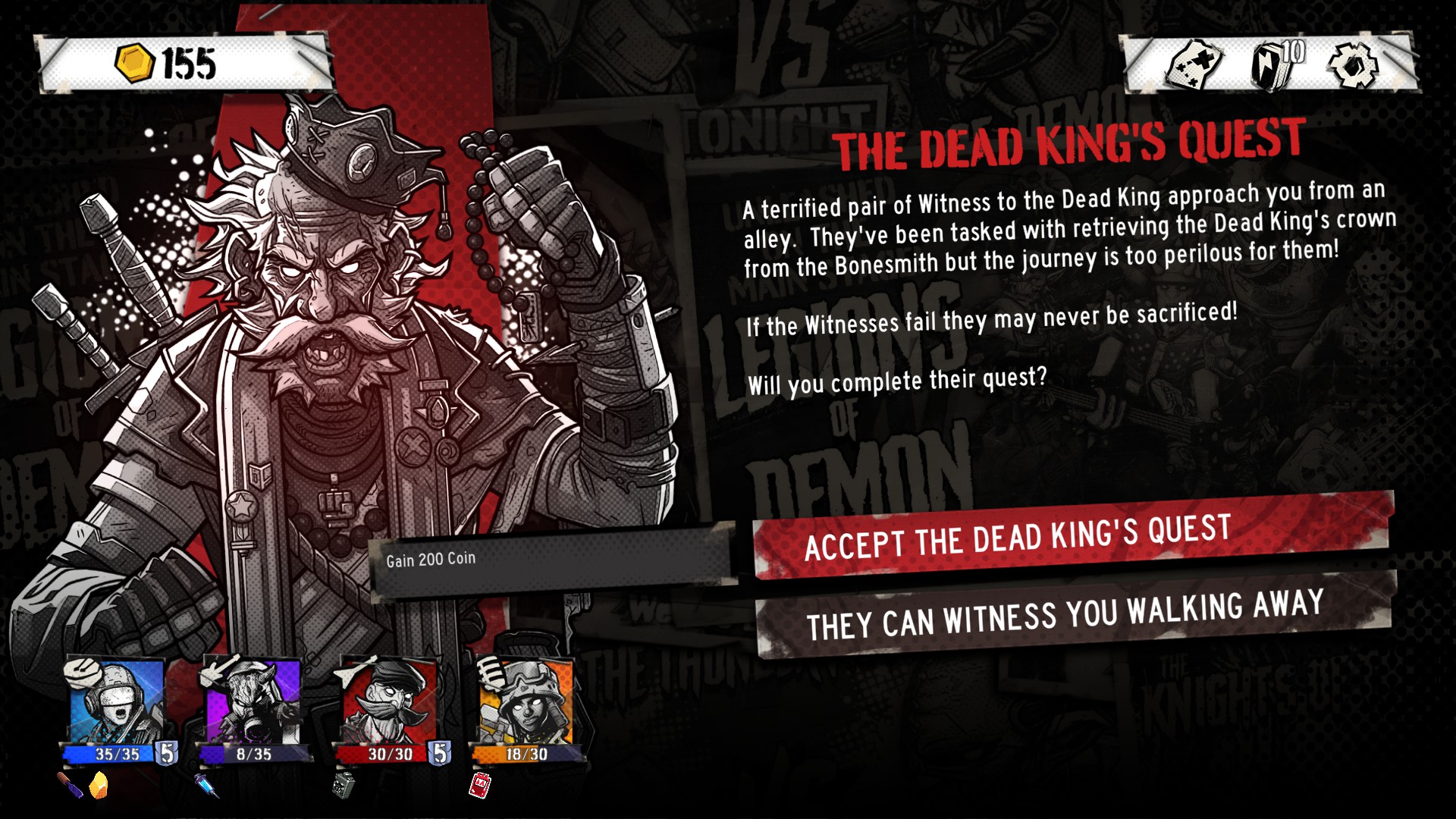
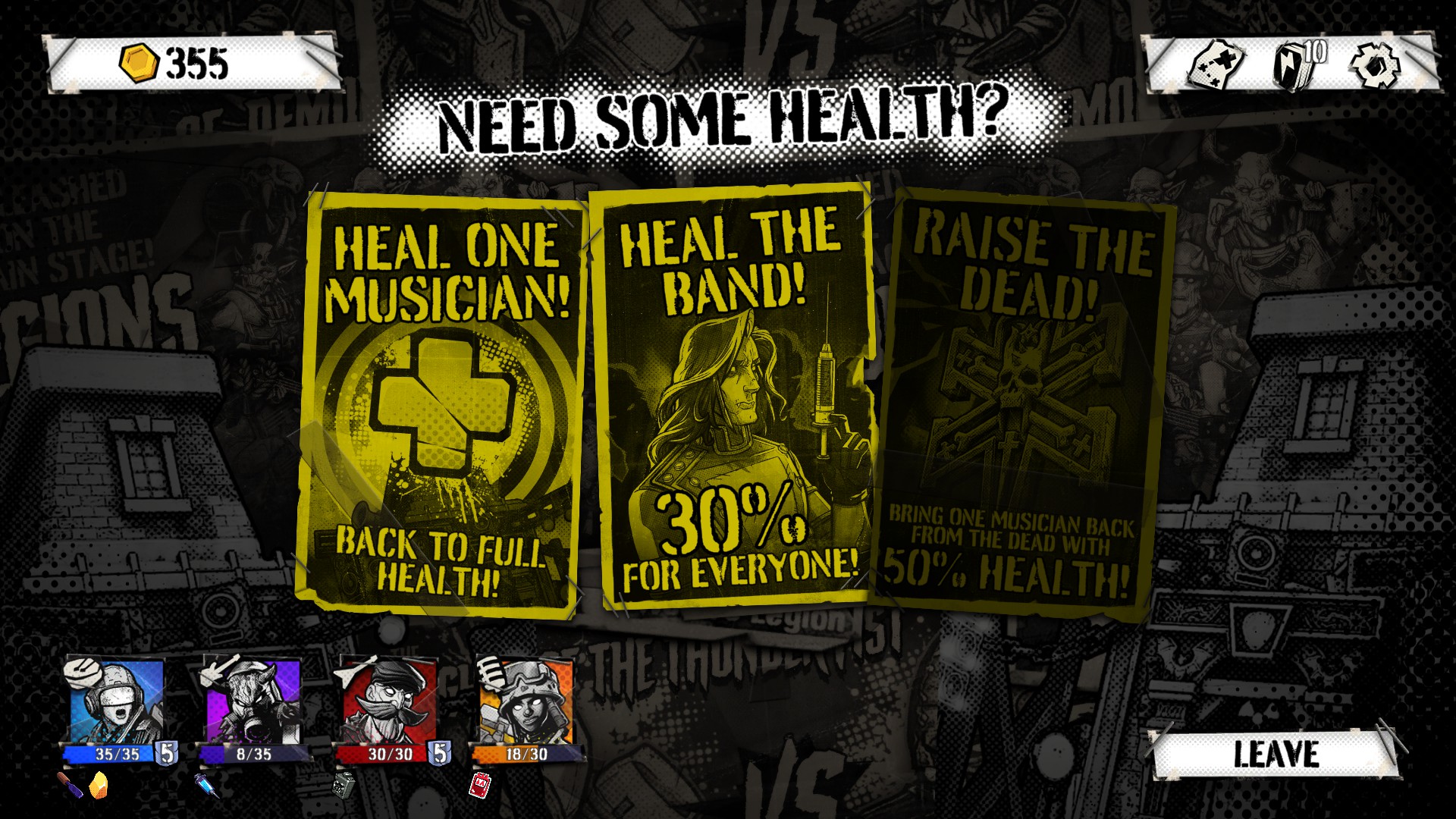
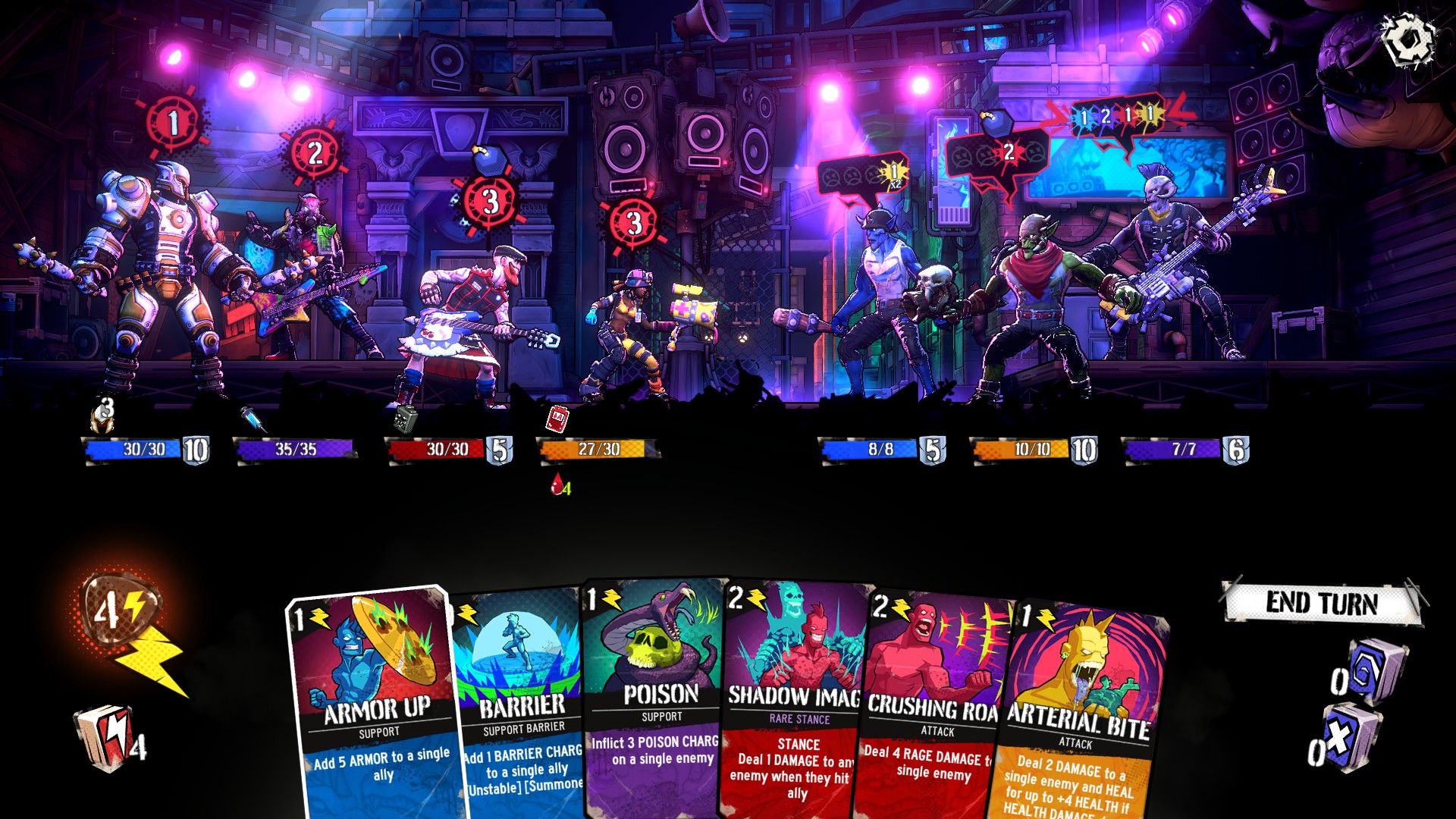
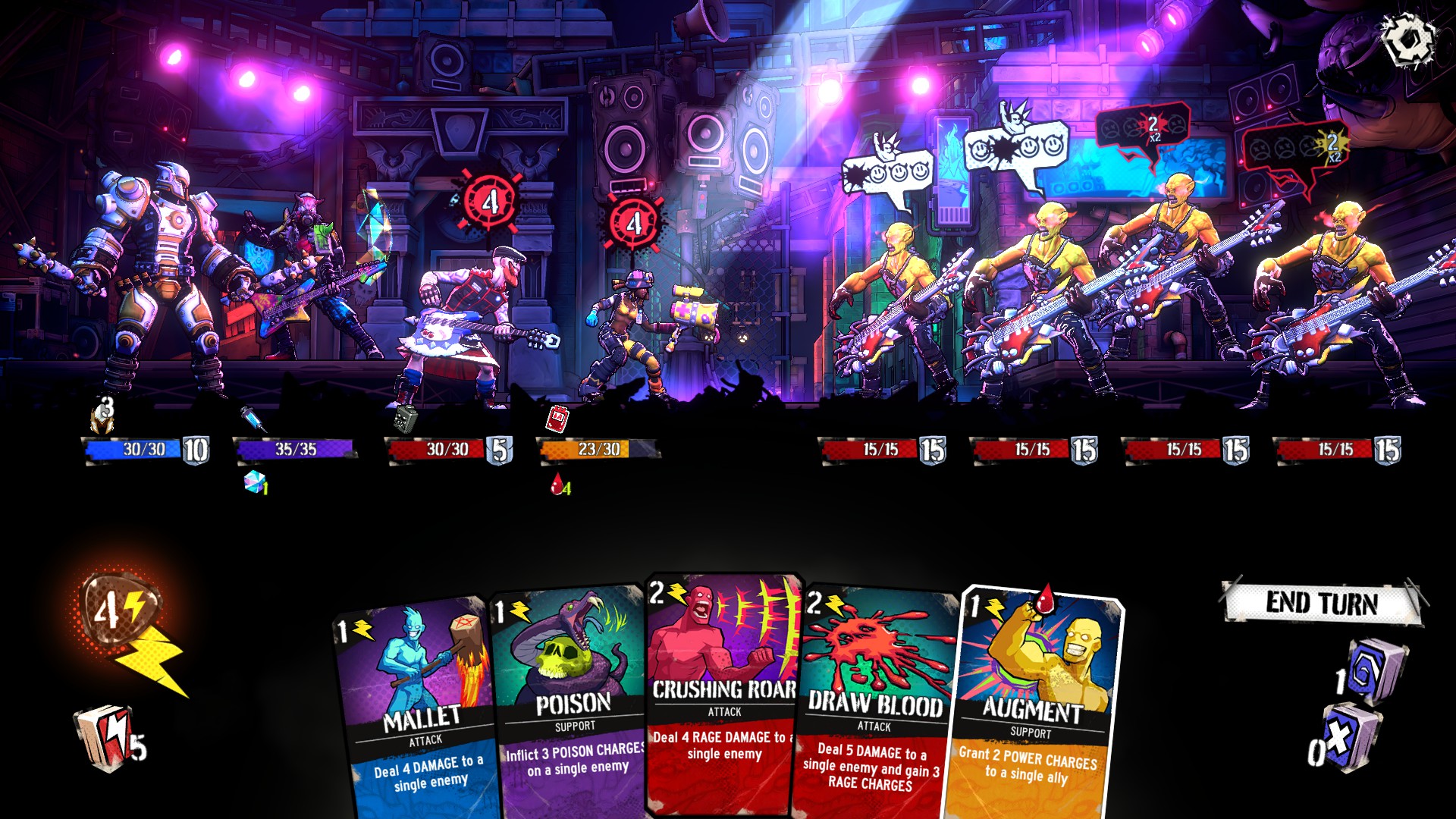
Power Chord’s card battles are strung together by a roguelite progression system, a simple dotted map with random encounters between pit stops to heal or gear up. Due to the lack of visual clarity on where damage is coming from in the midst of a battle, I never found myself weighing the risk and reward of these route options, with it often making the most strategic sense to beeline towards healing stations. There’s a good variety of unlockable gear (chokers and band shirts, expectantly) with powerful enough bonuses, like free hand shuffles or being able to play a single-use card twice, so runs don’t end up feeling too samey. It’s all quite lightweight, never intrusive but not really adding anything gripping, either.
Power Chord has a sturdy enough mechanical skeleton let down by an anemic commitment to the bit. It never full-tilt embraces the genre it’s pulling from in a meaningful or sincere way, only ever using it as cheap theming. Coupled with battles that swing between satisfying, frustrating, and incomprehensible, Power Chord feels out of time and out of tune.
Power Chord’s slick card-slinging combat is weighed down by a gaudy aesthetic and lack of variety.
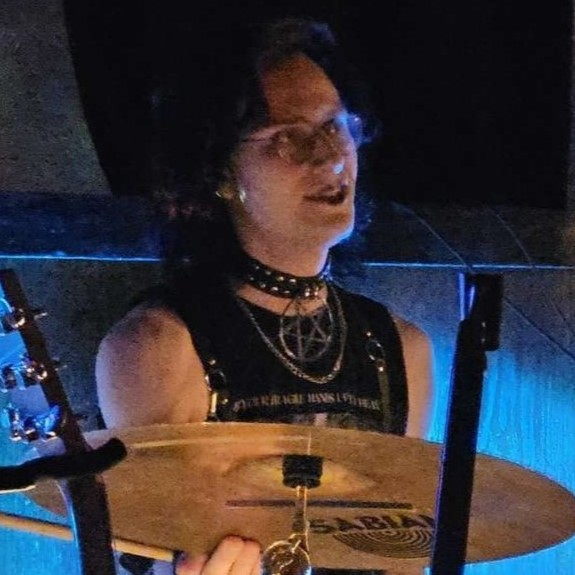
Nova Smith is a freelance writer based out of Alberta, Canada. Nova's grab bag of non-gaming interests and passions includes Japanese mecha anime, miniature painting, as well as history, literature, and classical music. Nova also moonlights as a bureaucrat and amateur historian.
